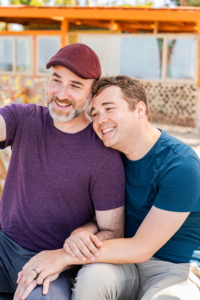Jewish Farmers Gather to Advance Field of Jewish Community Farming
SAN DIEGO, CA (January 22nd, 2015) — For the first time in decades, Jewish farmers from all over North America and Israel will be convening at the Leichtag Foundation property in Encinitas on January 25-27th, 2015 to share best practices and discuss emerging opportunities in the growing field of Jewish community farming.
“The Jewish people are historically farmers” said Leichtag Foundation CEO Jim Farley. “This gathering demonstrates that a new Jewish farming movement is thriving.”
This convening, known as the Jewish Community Farmer Advisory Committee, comes on the heels of the Jewish Outdoor, Food, and Environmental Education (JOFEE) report, released in March 2014, which indicated a growing movement of Jewish experiences centered around outdoor, food, and environmental education.
Nearly 30 individuals representing 15 organizations will be in attendance. Notable organizations include Hazon (CT), Eden Village (NY), Ekar (CO), Boulder JCC (CO), Pearlstone Center (MD), Jewish Farm School (PA), Urban Adamah (Berkeley, CA), Netiya (Los Angeles, CA), Shoresh (Canada), and Kaima Farm (Israel).
One of the featured presenters of the convening is the Jim Joseph Foundation, which is supportive of several organizations represented in the JOFEE report.
“Bringing together leaders of key organizations to share knowledge and to learn from experts is an important step in advancing and beginning to professionalize this emerging field,” said Chip Edelsberg, Executive Director of the Jim Joseph Foundation. “Our mission is to create new and dynamic Jewish learning opportunities, and JOFEE has evidenced significant potential in this area. Young adults in particular, as detailed in the JOFEE report, are attracted to these experiences as a way to engage in Jewish life and learning. With these initial findings, the Foundation is both excited about the future and aware of the important work of field-building still to be done.”
There is a deep history of Jewish farming in North America. From 1880-1920, Jewish immigrants came to America and began farming. During this time, Jewish farming communities were developed with the support of the Baron de Hirsch Fund. The Jewish Agricultural Society in America formed in 1900 to support this movement. After World War II, agriculture changed and organized Jewish farming began to dissipate. This convening marks the rebirth of Jewish community farming.
“We see this as the beginning of many gatherings” said Daron “Farmer D” Joffe, Director of Agricultural Innovation for the Leichtag Foundation. “We want to help advance the field by being a place to gather and learn.”
The Leichtag Foundation purchased the former Paul Ecke Ranch in Encinitas, CA in December 2012; it is a 67.5 acre property that amplifies the strategic focus areas of the Foundation and is a nexus to bring them all together.
###


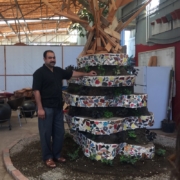
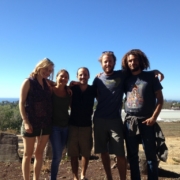



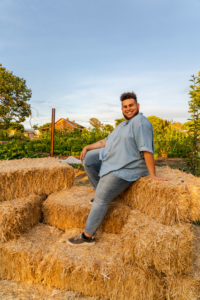 Black, Jewish and Queer. These three identities weave the fabric of who I am, but it took a long time to believe that they could exist together.
Black, Jewish and Queer. These three identities weave the fabric of who I am, but it took a long time to believe that they could exist together.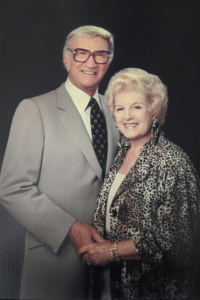 Lee and Toni Leichtag established the Leichtag Foundation in 1991 following the sale of their business. Lee and Toni were lifelong entrepreneurs with a passion for innovation and for supporting talent. They believed that only with big risk comes big reward. Both born to families in poverty, Toni to a single mother, they strongly believed in helping those most in need and most vulnerable in our community. While they supported many causes, their strongest support was for young children and the elderly, two demographics who particularly lack voice in our society.
Lee and Toni Leichtag established the Leichtag Foundation in 1991 following the sale of their business. Lee and Toni were lifelong entrepreneurs with a passion for innovation and for supporting talent. They believed that only with big risk comes big reward. Both born to families in poverty, Toni to a single mother, they strongly believed in helping those most in need and most vulnerable in our community. While they supported many causes, their strongest support was for young children and the elderly, two demographics who particularly lack voice in our society. Lifelong Baltimoreans, Rabbi George and Alison Wielechowski and their sons, 11-year-old Lennon and 9-year-old Gideon, are more than pursuing the good life in Southern California. Having moved to San Diego more than three years ago, they are fulfilling a lifelong dream.
Lifelong Baltimoreans, Rabbi George and Alison Wielechowski and their sons, 11-year-old Lennon and 9-year-old Gideon, are more than pursuing the good life in Southern California. Having moved to San Diego more than three years ago, they are fulfilling a lifelong dream.
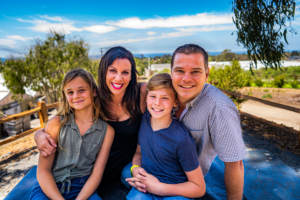
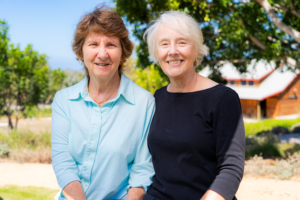
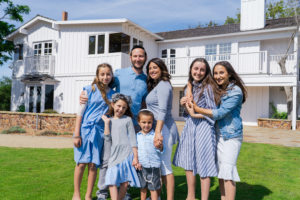
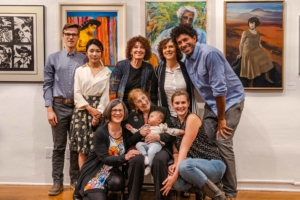
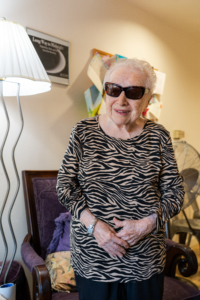
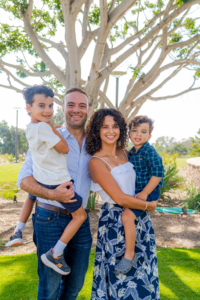
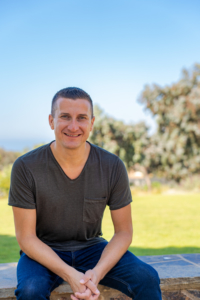 You would think that as the executive director of San Diego LGBT Pride, Fernando Zweifach López Jr., who uses the pronoun they, has done all the coming out they possibly can. A queer, non-binary individual who has worked for many years on civil rights issues, López also speaks openly and often about their father’s family, Mexican-American migrant workers who tilled the fields of rural California.
You would think that as the executive director of San Diego LGBT Pride, Fernando Zweifach López Jr., who uses the pronoun they, has done all the coming out they possibly can. A queer, non-binary individual who has worked for many years on civil rights issues, López also speaks openly and often about their father’s family, Mexican-American migrant workers who tilled the fields of rural California.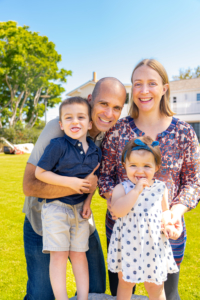 Stacie and Jeff Cook understand commitment. They live it.
Stacie and Jeff Cook understand commitment. They live it.